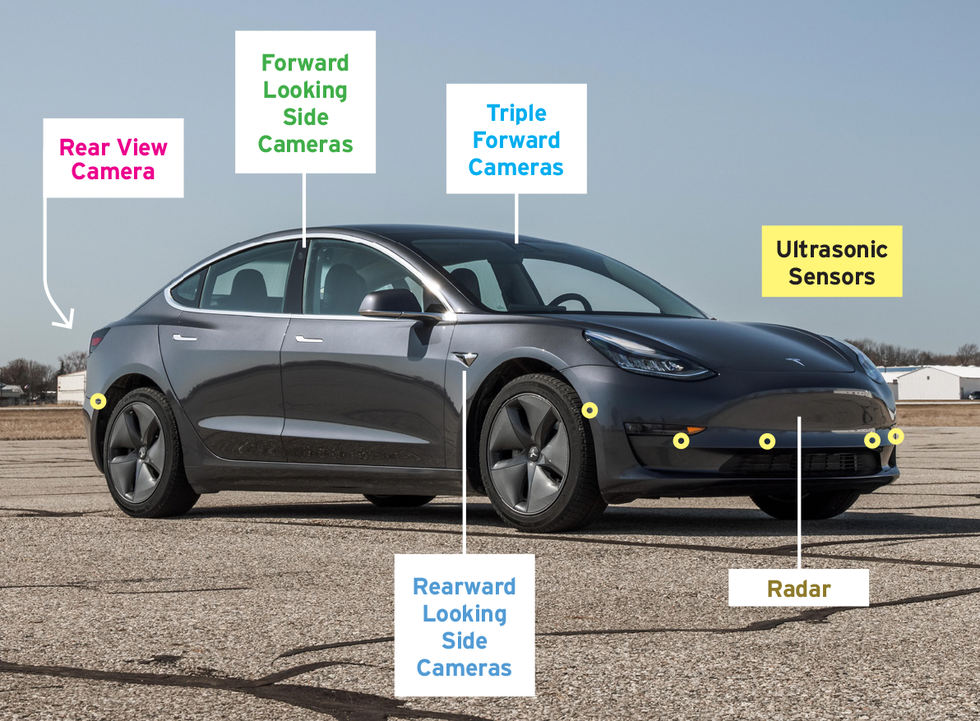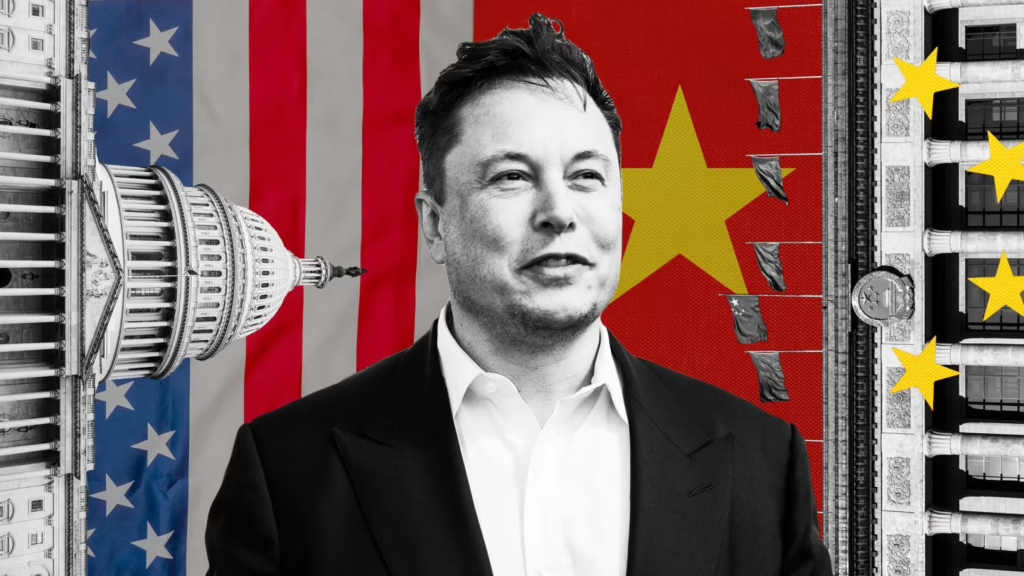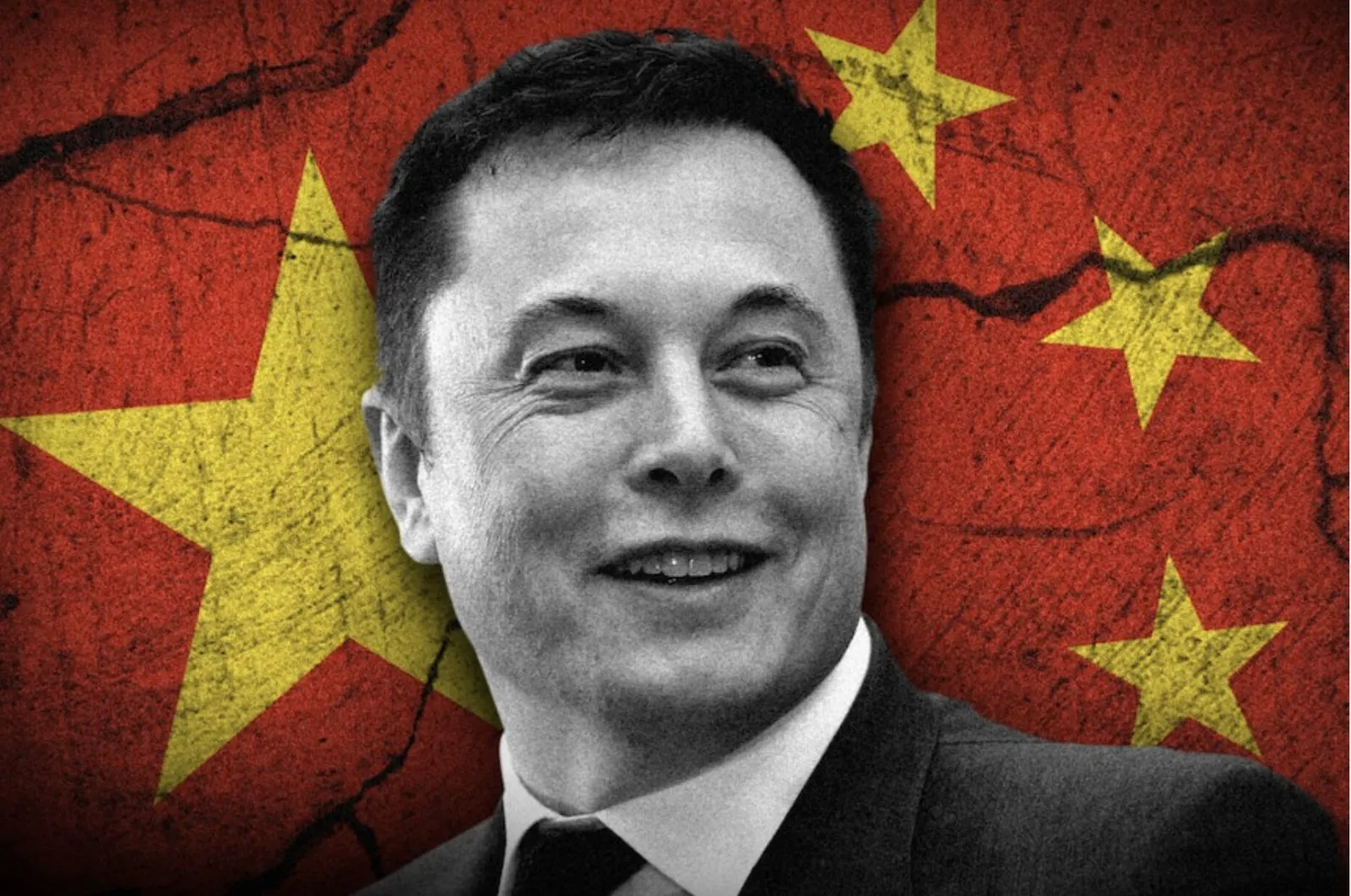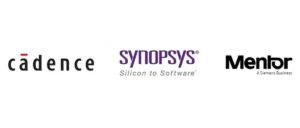Introduction:
Tesla’s Full Self-Driving (FSD) technology has been a topic of widespread interest and speculation, promising to revolutionize the automotive industry with its autonomous driving capabilities.
As Tesla expands its FSD rollout, particularly in key markets like China, it’s essential to delve into what FSD entails and why its deployment in China holds significant implications.
In this blog post, we’ll explore the fundamentals of Tesla’s FSD technology, its current status, and why its expansion in China matters.
Tesla’s Model Y and three cars made it onto a top Chinese auto association’s list of 76 car models found to be compliant with China’s data security requirements
Follow us on LinkedIn for everything around Semiconductors & AI
What is Tesla’s Full Self-Driving Technology?
Tesla’s Full Self-Driving technology represents the culmination of years of research and development aimed at achieving fully autonomous driving capabilities.
At its core, FSD utilizes advanced sensors, cameras, and AI algorithms. These components enable vehicles to navigate and operate autonomously.
Tesla’s FSD seeks to eliminate the need for human intervention in driving tasks. Unlike traditional systems, FSD aims for complete autonomy in complex driving scenarios.

It represents a significant leap forward in automotive technology and safety.
Technically, it’s not fully autonomous: Despite the name, FSD is currently a Level 2 driver-assistance system according to SAE International’s levels of driving automation. This means it requires a fully attentive driver who can take over at any moment.
What it does offer: FSD adds some advanced features to Tesla’s Autopilot system, including:
Navigate on Autopilot: This helps guide your car on highways, including suggesting lane changes and navigating exits.
Automatic lane changing: Assists with changing lanes on the highway when Autopilot is engaged.
Automatic parking: Helps with parallel or perpendicular parking.
Critics argue the name “Full Self-Driving” is misleading because it can create the impression that the car can drive itself, which is not safe. Tesla maintains that FSD is still under development in a large-scale beta program, with the goal of achieving true autonomy (Level 5) eventually. [CNBC don t rate tesla’s full self driving too highly ON cnbc.com]
There have been accidents and fatalities involving Teslas using Autopilot, raising concerns about these driver-assistance systems.
So, while FSD offers some advanced features, it’s important to remember it’s not truly self-driving and requires an attentive driver at all times.
Read More:$42 Million: PSMC Opens New Factory to Produce 50,000 12-Inch Wafer including CoWoS – techovedas
Key Features of Tesla’s FSD:
Enhanced Autopilot: Tesla’s Enhanced Autopilot feature provides advanced driver assistance capabilities, including adaptive cruise control, lane-keeping assistance, and automatic lane changes. This allows the vehicle to maintain its position within lanes, adjust speed based on traffic conditions, and navigate highways with minimal driver input.
Navigate on Autopilot: With Navigate on Autopilot, Tesla vehicles can autonomously navigate highway interchanges, exit ramps, and intersections. The system utilizes real-time traffic data and GPS navigation to plan and execute lane changes, merges, and exits, providing a seamless driving experience for the driver.
Full Self-Driving (Beta): Tesla’s Full Self-Driving Beta represents the next evolution of its autonomous driving technology. This aiming to achieve true hands-free driving in a wide range of scenarios. While still in beta testing, FSD Beta enables advanced features such as city street navigation, traffic light and stop sign recognition, and pedestrian detection, bringing Tesla closer to its vision of fully autonomous driving.
Read More:Satya Nadella, Sam Altman, and Sundar Pichai to Join U.S. AI Security Advisory Board – techovedas
Why Tesla’s FSD Rollout Matters in China:

There are a couple of key reasons why Tesla rolling out FSD in China is a big deal:
1. Bigger, Tech-Savvy Market:
- China is the world’s largest auto market, meaning a huge potential customer base for Tesla.
- Chinese consumers are known to be interested in cutting-edge technology, and driver-assistance features are a selling point.
- FSD could give Tesla a significant edge over competitors in China, where domestic carmakers are also developing advanced driver-assistance systems.
2. Revenue and Data:
- A wider FSD rollout in China could mean more revenue for Tesla, as they currently charge extra for the FSD package.
- With more Teslas using FSD on Chinese roads, Tesla would collect a massive amount of valuable data on driving conditions and behaviors in that specific market. This data can be used to further improve FSD for China and globally.
- However, there are also concerns about data privacy and security with such a large-scale data collection effort.
3. Heating Up the Competition:
- FSD’s arrival could intensify competition in the Chinese auto market, especially for driver-assistance features.
- Chinese tech companies like Xiaomi are already entering the electric car space with their own driver-assistance systems.
- This competition could lead to more innovation and potentially lower prices for consumers.
Overall, Tesla’s FSD rollout in China has the potential to be a game-changer, but it will also be interesting to see how Chinese regulators and consumers react to this technology.
Tesla CEO Elon Musk made an unannounced visit to Beijing to discuss the rollout of Full Self-Driving (FSD) software and data transfer permissions. Musk met with Premier Li Qiang, sharing a photo on social media. Tesla cleared regulatory hurdles for FSD in China, potentially boosting competition in the auto market. The move could also help Tesla navigate regulatory challenges and declining EV sales, while aligning with China’s push for technological innovation and competition in the autonomous driving sector.
Read More: Ola Krutrim Challenges Tech Giants with Launch of AI Cloud Platform and Assistant App – techovedas
Baidu’s Role
Baidu plays a critical role in enabling Tesla’s FSD rollout in China in two key ways:
Mapping and Navigation:
- In China, all intelligent driving systems, including FSD, require a government-approved mapping license.
- Foreign companies like Tesla can’t get this license themselves and need to partner with a domestic company that has one.
- Baidu is one of a limited number of companies in China with this mapping license.
- By partnering with Baidu, Tesla gains access to:
- High-definition maps of China’s roads and infrastructure, crucial for FSD to function effectively.
- Baidu’s lane-level navigation system, which provides precise information about lanes, exits, and traffic signals.
- This access allows Tesla’s FSD to operate legally and navigate effectively on Chinese roads.
Regulatory Hurdle:
- Partnering with Baidu likely removes a major regulatory hurdle for Tesla’s FSD rollout.
- Chinese authorities may view Baidu’s involvement favorably as it demonstrates compliance with data regulations and potentially improves data security.
- This partnership could expedite the approval process for FSD in China.
In essence, Baidu acts as a bridge for Tesla, providing the essential mapping data and navigation tools needed for FSD to function and potentially smoothing the path to regulatory approval.
Limited Availability:
Tesla’s Full Self-Driving (FSD) is available on a limited basis in China, offering only a subset of features like automated lane changing.
This restricted availability has persisted for four years since Tesla introduced FSD subscriptions in the Chinese market.
Despite the long presence of FSD in China, the full suite of autonomous driving capabilities has yet to be unlocked for Chinese Tesla owners.
Read More: Breakthrough: Intel Marches Towards Scalable Silicon-Based Quantum Processors – techovedas
Data Security Concerns:
Data security issues have posed a significant hurdle to a comprehensive FSD rollout in China.
Tesla intends to transfer data collected within China to train algorithms for its autonomous driving technologies.However, concerns regarding data security and privacy have slowed down the approval process for full FSD functionality.
Ensuring the protection of sensitive data is crucial for gaining regulatory approval and customer trust.
Read More: Italy Invests $10.7 Billion to Become Europe’s Microelectronics Leader – techovedas
Regulatory Approval Challenges:
Obtaining official approval for data transfer is essential to address data security concerns. Tesla faces regulatory challenges in navigating China’s stringent data protection regulations.
Compliance with Chinese regulations regarding data sovereignty and cross-border data transfers is paramount. Overcoming regulatory hurdles is crucial for expanding FSD capabilities and providing a seamless autonomous driving experience to Chinese consumers.
Importance of Full FSD Rollout:
A full FSD rollout in China is critical for Tesla to remain competitive in the market. Offering comprehensive autonomous driving features can enhance Tesla’s appeal to Chinese customers.
Access to advanced FSD capabilities may drive increased adoption of Tesla vehicles in China’s burgeoning electric vehicle market. Successful navigation of regulatory challenges will pave the way for Tesla to unlock the full potential of FSD technology in China, contributing to safer and more efficient transportation solutions.
Read More: Samsung Collaborates with UMC to Build Image Sensors in Fab Lite Model to Overtake SONY – techovedas
Conclusion:
Tesla’s Full Self-Driving (FSD) technology marks a major advancement in autonomous driving. It has the potential to revolutionize commuting and travel experiences.
As Tesla expands FSD deployment, especially in key markets like China, the automotive industry faces significant changes. Understanding FSD basics and its importance in China provides insights into future mobility trends.
Autonomous driving technology is poised to play a pivotal role in shaping the future of transportation. Tesla’s strategic moves in China highlight its commitment to leading the automotive industry’s transformation.



